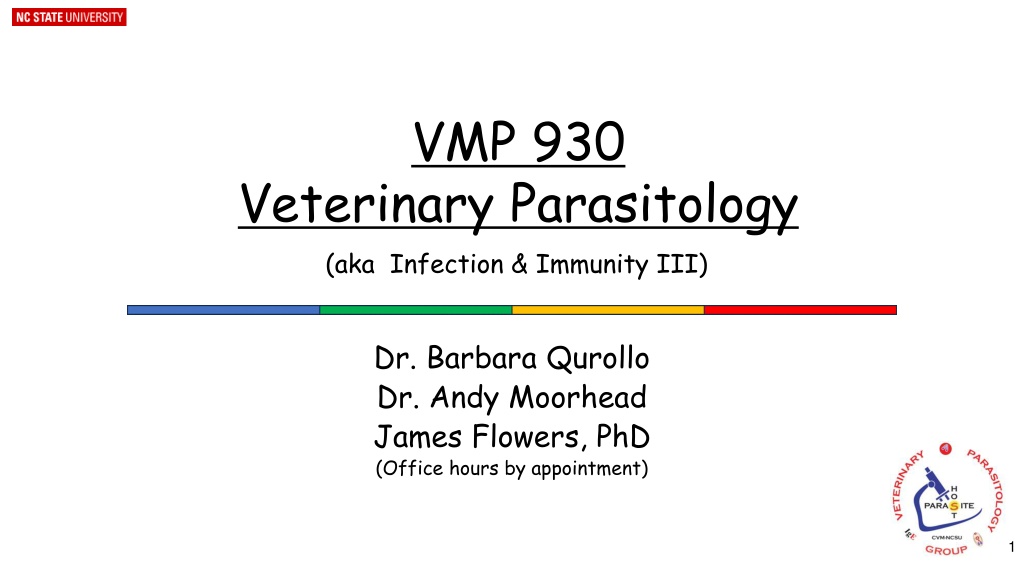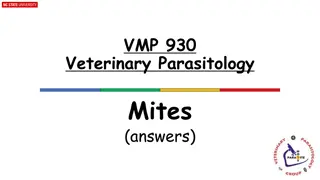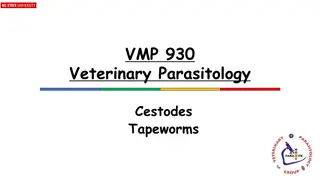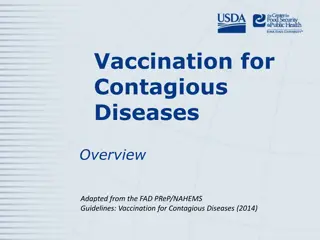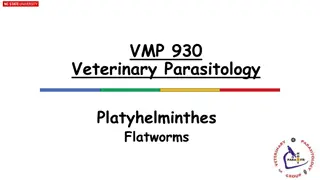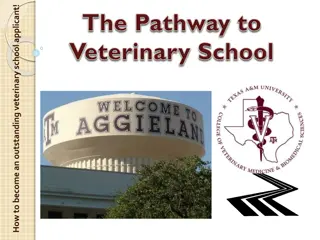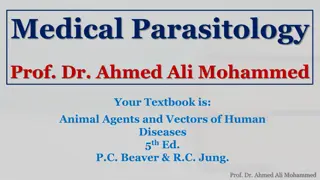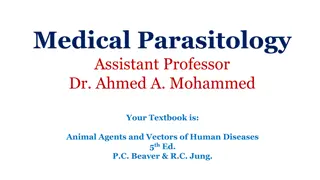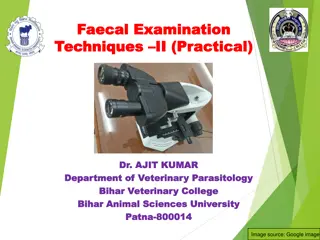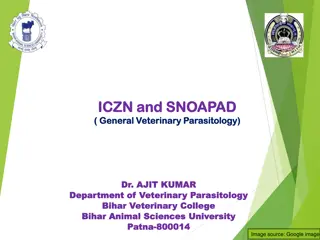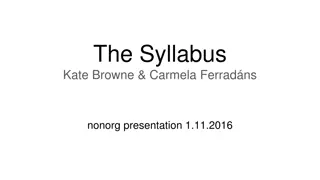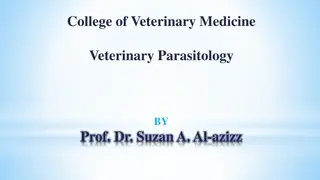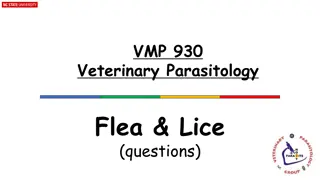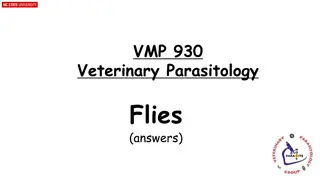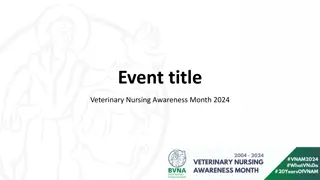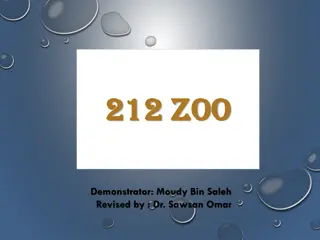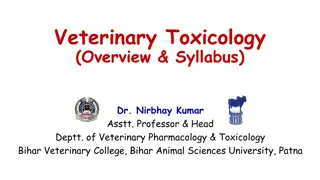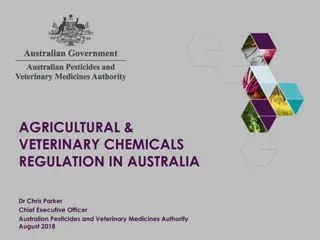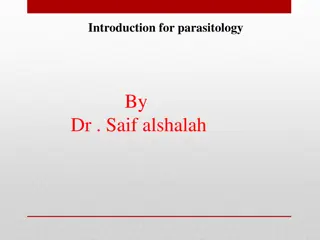Veterinary Parasitology Course Syllabus
This veterinary parasitology course covers major parasites of domestic animals, their life cycles, clinical signs, diagnostic techniques, treatment plans, and zoonotic concerns. The syllabus includes recommended texts, schedule of lectures and exams, lab group decisions, and details on examinations including quizzes and final exam.
Download Presentation

Please find below an Image/Link to download the presentation.
The content on the website is provided AS IS for your information and personal use only. It may not be sold, licensed, or shared on other websites without obtaining consent from the author. Download presentation by click this link. If you encounter any issues during the download, it is possible that the publisher has removed the file from their server.
E N D
Presentation Transcript
VMP 930 Veterinary Parasitology (aka Infection & Immunity III) Dr. Barbara Qurollo Dr. Andy Moorhead James Flowers, PhD (Office hours by appointment) 1
Syllabus -- Objectives Become knowledgeable about the major Parasites of Domestic animals Recognize Parasites of concern Explain and understand the implications of their life cycles. Recognize the pathology and clinical signs they cause Understand and interpret diagnostic techniques and identify diagnostic stages Be able to develop treatment plans and control strategies. Be knowledgeable about zoonotic concerns 2
Syllabus Recommended Text Georgis Parasitology For Veterinarians 11th edition Many good quick-reference tables Diagnostic stages, prepatent periods, transmission Section on Current Anti-Parasitics Section with Annotated Lists of parasites for many domestic animals 3
Syllabus Schedule Lectures & Lecture Exams: M @ 8:00 in B112 [South Theater] W @ 8:00 in B112 [South Theater] Labs: H @ 1:00 thru 4:00 in B104D [Microscope Lab] 3 Groups (A, B, C) of 38-39 students each 1-2; 2-3; 3-4pm (See website for group order/lab) Special Notes First 3 and Last Lab Periods will be Lectures H @ 1:00 in B112 [South Theater] August 15, August 22, August 29, November 14 W, August 28, 8am lecture in D239 4
LAB Times & Groups Class Decision by August 22 LAB Times: 1-2pm; 2-3pm; 3-4pm Does class want to keep lab time the same for each group? (ex. Group A is always from 1-2pm, Group B is always 2-3pm, Group C is always 3- 4pm) OR does class want to rotate the times for each group each week? (ex. Week 1: Group A is 1-2pm, Week 2: Group A is 2-3pm, etc.) Student Decision by August 29 LAB Groups Students have already been randomly placed in groups (see website) Before August 29, send emails if you want to swap lab groups Even swaps. A pair of students is required to request the swap with each other. Email: jflowers@ncsu.edu 5
Syllabus Examinations Two lecture exams (closed-book; on-site) Protozoa & Arthropods (15%) [September 18] {ExamSoft} Nematodes (15%) [November 04] {ExamSoft} One laboratory exam (closed-book; on-site) Cumulative (10%) [November 07] Five Lecture Quizzes (open-book; non-collaborative; Location: student s choice) (5% each) {Moodle Quizzes} 1 Protozoa, 1 Arthropod, 2 Nematode, 1 Platyhelminthes During the unused portion of some labs. Final Exam (closed-book; on-site) Cumulative (35%) [November 18] (9am, B112) {ExamSoft} Must acquire an excused absence from Academic Affairs prior to Make-up Exam consideration. 6
Grade Scale Final Grades Letter S (satisfactory) M (marginal) U (unsatisfactory) Percentage 75% - 100% 66% - 74% < 65% Marxism the imposition of equivalent outcomes despite the effort. Anything greater than 75% is wasted effort. Don t be a victim of stolen effort. 7
Parasitology Website http://parasitology.cvm.ncsu.edu 9
